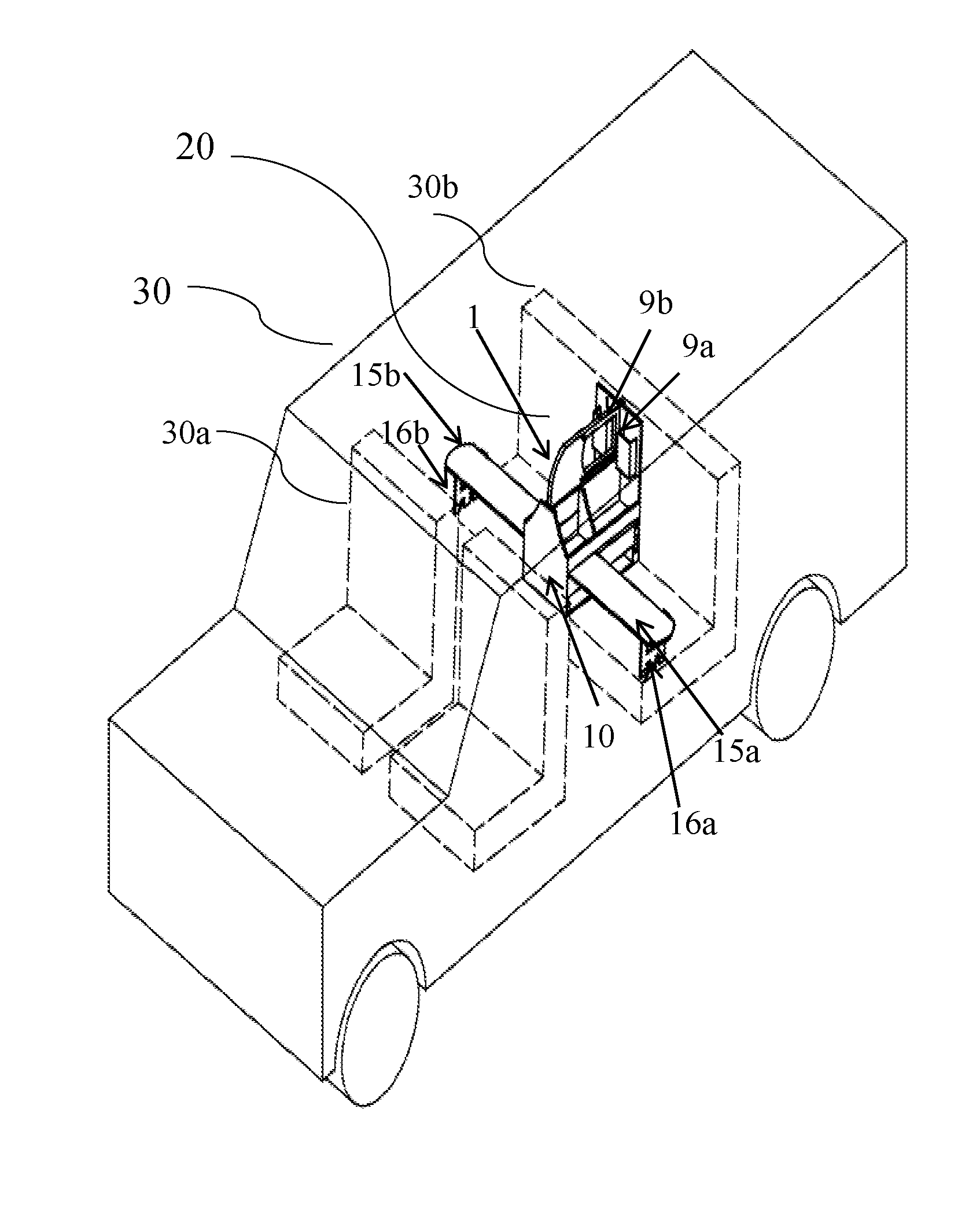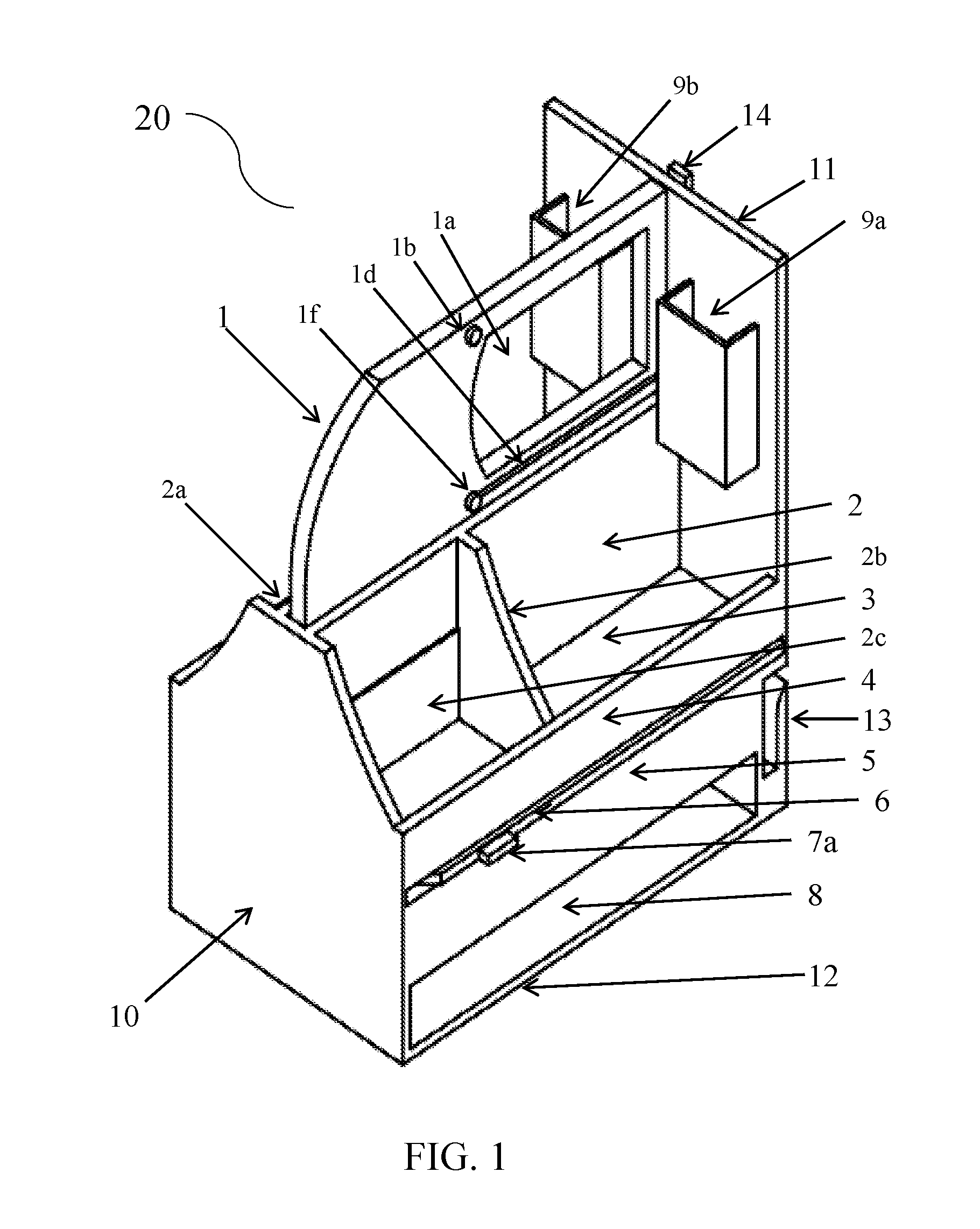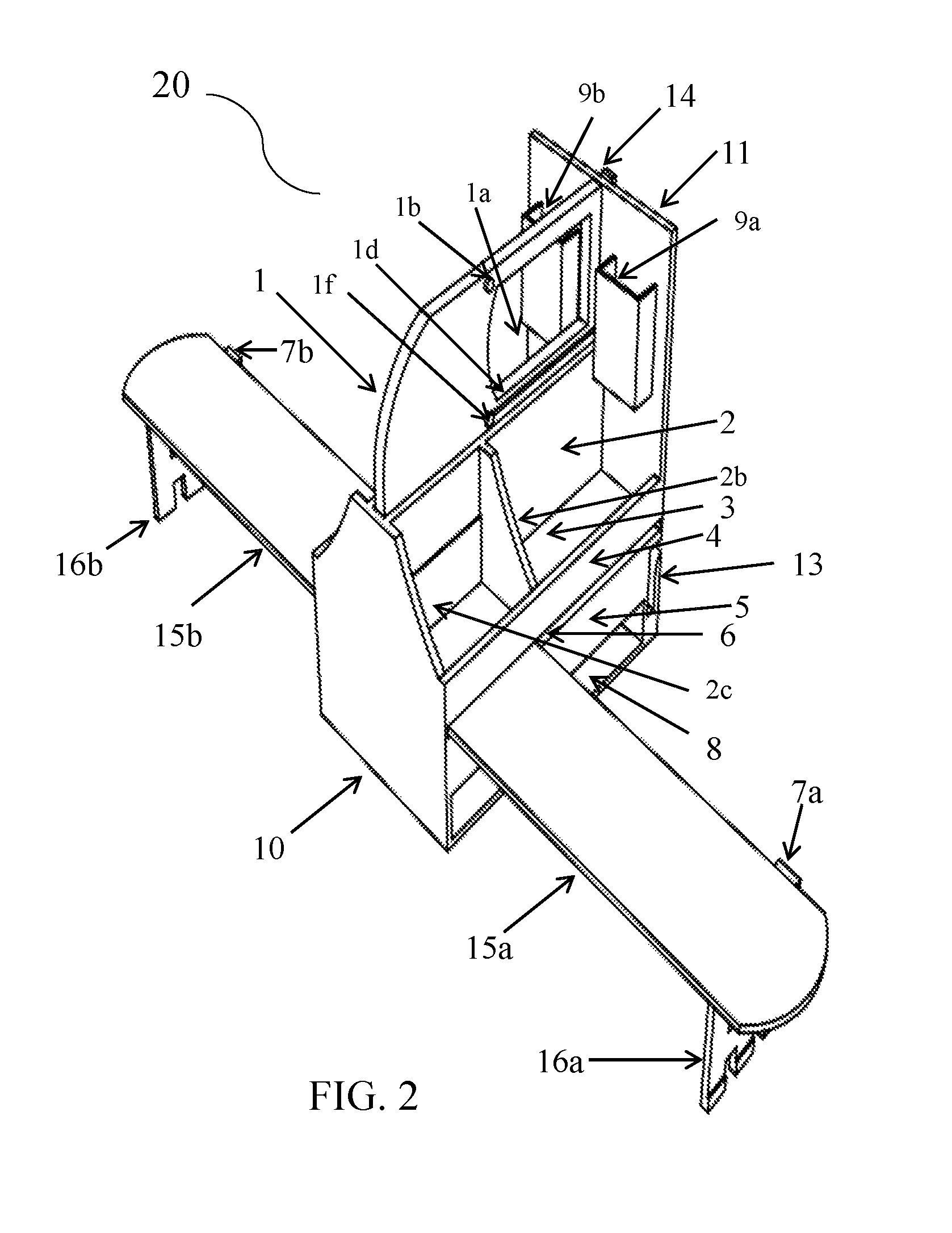Seat divider with recessed top panel and two-way viewing window
a seat divider and recessed top panel technology, applied in the direction of chairs, roofs, pedestrian/occupant safety arrangements, etc., can solve the problems of discord between children, inconvenience, and a nightmarish and unpleasant journey for parents and children, and achieve the effect of raising and lowering
- Summary
- Abstract
- Description
- Claims
- Application Information
AI Technical Summary
Benefits of technology
Problems solved by technology
Method used
Image
Examples
Embodiment Construction
[0030]The present invention is an automobile seat divider for use in the rear passenger seat of a vehicle to create a barrier between children seated in the back seat while supporting the varying circumstances that arise in a car, including but not limited to the need for full interaction, partial interaction, and isolation amongst the children. The seat divider of the present invention is configured to provide the means for visual contact and communications between the children in a civil manner and to entertain each other when appropriate.
[0031]Referring now to the drawings, it is to be noted that like numerals represent like components in the several views presented and discussed. Specifically referring now to FIG. 1 a perspective view of an exemplary embodiment of the seat divider 20 of the invention is presented to show the general structure of the device. In this embodiment, the seat divider 20 has a front panel 10 a back panel 11 and a base panel 12 which together provide the...
PUM
 Login to View More
Login to View More Abstract
Description
Claims
Application Information
 Login to View More
Login to View More - R&D
- Intellectual Property
- Life Sciences
- Materials
- Tech Scout
- Unparalleled Data Quality
- Higher Quality Content
- 60% Fewer Hallucinations
Browse by: Latest US Patents, China's latest patents, Technical Efficacy Thesaurus, Application Domain, Technology Topic, Popular Technical Reports.
© 2025 PatSnap. All rights reserved.Legal|Privacy policy|Modern Slavery Act Transparency Statement|Sitemap|About US| Contact US: help@patsnap.com



